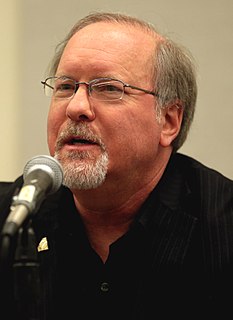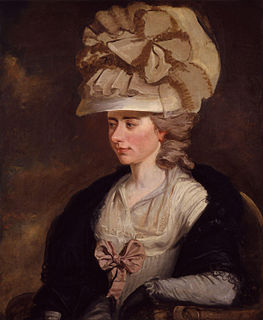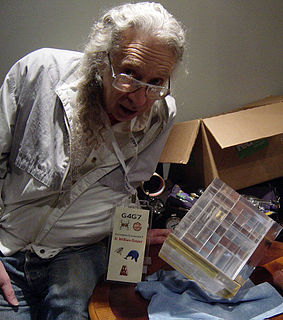A Quote by Rowan Williams
We discover too late that we have turned a blind eye to the extinction of a species that is essential to the balance of life in a particular context. Or we discover too late that the importation of a foreign life-form, animal or vegetable, has upset local ecosystems, damaging soil or neighbouring life-forms. We discover that we have come near the end of supplies-of fossil-fuels for example -on which we have built immense structures of routine expectation.
Quote Topics
Animal
Balance
Blind
Blind Eye
Built
Come
Context
Damaging
Discover
Ecosystems
End
Essential
Example
Expectation
Extinction
Eye
For Example
Foreign
Form
Forms
Fossil
Fuels
Immense
Importation
Late
Life
Local
Near
Particular
Routine
Soil
Species
Structures
Supplies
Too
Too Late
Turned
Upset
Vegetable
Which
Related Quotes
Life is insanely robust, though we can make species go extinct, and this is the bad thing. So I always make the point that you can't say, 'Is it too late?' That is the terrible question, because either answer promotes inaction. If it's too late, you don't need to act; if it's not too late, you don't need to act.
To attain something desired is to discover how vain it is; and…though we live all our lives in expectation of better things, we often at the same time long regretfully for what is past. The present, on the other hand, is regarded as something quite temporary and serving only as the road to our goal. That is why most men discover when they look back on their life that they have the whole time been living ad interim, and are surprised to see that which they let go by so unregarded and unenjoyed was precisely their life, was precisely in expectation of which they lived.
I feel as if one would only discover on one's death-bed what one ought to have lived for, and realise too late that one's life has been wasted. Any passionate and courageous life seems good in itself, yet one feels that some element of delusion is involved in giving so much passion to any humanly attainable object. And so irony creeps into the very springs of one's being.
Art has to be a kind of confession. I don't mean a true confession in the sense of that dreary magazine. The effort it seems to me, is: if you can examine and face your life, you can discover the terms with which you are connected to other lives, and they can discover them, too - the terms with which they are connected to other people.
In the desert you become a discoverer. You discover your soul, which had been submerged in vain pursuits, which had been lost in the coils and toils of modern life. You discover your kinship with nature and man, which is evoked by the naturalness and the gentle humanity of the natives of the desert, and you will also discover God.
All publishers are Columbuses. The successful author is their America. The reflection that they-like Columbus-didn't discover what they expected to discover, and didn't discover what they started out to discover, doesn't trouble them. All they remember is that they discovered America; they forget that they started out to discover some patch or corner of India.
Humanity is part of nature, a species that evolved among other species. The more closely we identify ourselves with the rest of life, the more quickly we will be able to discover the sources of human sensibility and acquire the knowledge on which an enduring ethic, a sense of preferred direction, can be built.
The early Triassic was a period when the planet was recovering from the worst mass extinction it had ever known - that was the end Permian extinction, where climate change caused in part by mega-volcanic eruptions wiped out ninety-five percent of life on Earth. It took about ten or twenty million years for the planet's ecosystems to stabilize. During that time you saw a lot of weird, out-of-balance ecosystems where, for example, crocodile-like predators ripped the crap out of each other along the coasts.





































